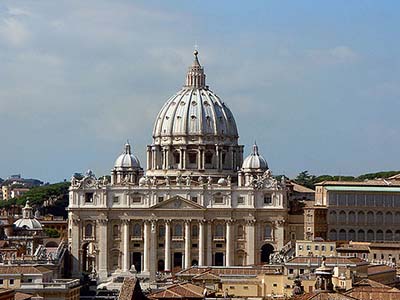- Dec 31, 2010
- 5,743
- 2,875
- 113
- Faith
- Christian
- Country
- United States
We have Saint Peter spending much of his early ministry in Israel ministering to the Jews. And according to scripture the Apostles handed the gentile church to the Apostle Paul....
But contrariwise, when they saw that the gospel of the uncircumcision was committed unto me, as the gospel of the circumcision was unto Peter; (For he that wrought effectually in Peter to the apostleship of the circumcision, the same was mighty in me toward the Gentiles). And when James, Cephas, and John, who seemed to be pillars, perceived the grace that was given unto me, they gave to me and Barnabas the right hands of fellowship; that we should go unto the heathen, and they unto the circumcision. - Galatians 2:7-9
After that we have l and ll Peter where he declares....
Peter, an apostle of Jesus Christ, to the strangers scattered throughout Pontus, Galatia, Cappadocia, Asia, and Bithynia, - 1 Peter 1:1
Pontus - Due north os Syria
Galatia - Next door to Pontus
Cappadocia - Between Pontus and Syria
Asia - That whole area
Bithynia - North of Galatia
And in 2 Peter he declares, “This second epistle, beloved, I now write unto you; in both which I stir up your pure minds by way of remembrance:” Noting the first epistle references Asians.
Paul, writing to the Romans declares, “For I speak to you Gentiles, inasmuch as I am the apostle of the Gentiles, I magnify mine office:” - Romans 11:13
I have no scriptural references of Peter ever entering or addressing Europeans.
But contrariwise, when they saw that the gospel of the uncircumcision was committed unto me, as the gospel of the circumcision was unto Peter; (For he that wrought effectually in Peter to the apostleship of the circumcision, the same was mighty in me toward the Gentiles). And when James, Cephas, and John, who seemed to be pillars, perceived the grace that was given unto me, they gave to me and Barnabas the right hands of fellowship; that we should go unto the heathen, and they unto the circumcision. - Galatians 2:7-9
After that we have l and ll Peter where he declares....
Peter, an apostle of Jesus Christ, to the strangers scattered throughout Pontus, Galatia, Cappadocia, Asia, and Bithynia, - 1 Peter 1:1
Pontus - Due north os Syria
Galatia - Next door to Pontus
Cappadocia - Between Pontus and Syria
Asia - That whole area
Bithynia - North of Galatia
And in 2 Peter he declares, “This second epistle, beloved, I now write unto you; in both which I stir up your pure minds by way of remembrance:” Noting the first epistle references Asians.
Paul, writing to the Romans declares, “For I speak to you Gentiles, inasmuch as I am the apostle of the Gentiles, I magnify mine office:” - Romans 11:13
I have no scriptural references of Peter ever entering or addressing Europeans.


